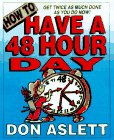Whenever we're not out of the state—or the country—on July 4, our favorite way to celebrate Independence Day is marching with the Greater Geneva Grande Award Marching Band. That's Geneva, Florida, population 2,940 give or take a few, not the larger and more famous Swiss version. I can't complain about missing the parade this year, as we instead spent the day with family and friends, some of whom had flown all the way from Switzerland (not Geneva) or the Gambia (think West Africa) to be there!
But if we had not been in such illustrious company and more than a thousand miles from home, we'd have been with our GGGAMB family. Camaraderie, music (and then some), free hot dogs, all the water you can drink (and sweat away), the fun of interacting with the crowd, and my all-time favorite arrangement of the Star-Spangled Banner (we miss you, Greg!), all wrapped up in a pleasant mix of old American patriotism and new American diversity.
I've written about the event before (for example, last year), but this time I have videos! We're not in them, but you'll get the idea well enough.
The band plays All Hail, Geneva! with our trademark Union Break in the middle.
If that experience didn't make you run from the room screaming, you can find more from the band here. (Janet, I recommend you click on that link and scroll to the bottom of the page.)
Richard, you did a great job with the cymbals, but I'm coming back anyway.
Permalink | Read 1915 times | Comments (0)
Category Everyday Life: [first] [previous] [next] [newest]
If we didn't live in Mickey's backyard, I don't know if our kids would ever have been to Disney World. They never were much into the Disney characters, and (thankfully) were born too soon to be part of the Disney Princess craze. But there’s a divinity that shapes our ends, rough-hew them how we will—our children grew up in Central Florida, and between good Florida resident deals and free tickets earned through performances at the parks, Disney World was a formative influence in their lives, and ours as well. EPCOT Center, most especially. It was hands down their favorite park, from the very beginning; fortunately, it was their parents' favorite park as well.
It is for them, as well as us, that I share this "heartfelt tribute to EPCOT Center as it existed from 1982-1993." The way it used to be, which of course is much better than it is today. Really. (H/T Ruth S., a World's Worst Marching Band friend)
Natsukashi!
Permalink | Read 1724 times | Comments (1)
Category Everyday Life: [first] [previous] [next] [newest]
 How to Have a 48-Hour Day by Don Aslett (Marsh Creek Press, 1996)
How to Have a 48-Hour Day by Don Aslett (Marsh Creek Press, 1996)
I've always found Don Aslett's books inspiring, and I first read and reviewed this one over ten years ago. This week I decided it was about time for a re-read, especially since I was looking for something quick, easy, and not too mentally challenging.
I found it more challenging this time than last. Not mentally, but emotionally. I didn't really want to hear, "Just suck it up and work harder," which is how the message struck me this time. I found it less inspiring than discouraging, and thus easier to quarrel with some of his premises and logic. On the other hand, I recognize that there's still a lot of wisdom in the book, so instead of picking it apart, I'll reproduce my original review:
“If you want to get something done, ask a busy person.” How to Have a 48–Hour Day explains why this saying is true. If you’re looking for a book that suggests you can accomplish more by doing less, you will be disappointed: This is like one of those tiresome diet books that tell you the only way to lose weight is to eat less and exercise more.
As he does in many of his other books, Aslett tells us things that we already know, but in such a way that we believe them. He provides no great revelation, no fancy organizational system. Instead, he dresses up wisdom in an entertaining, inspirational package. A few of his suggestions—such as cutting back on sleep—go too far, but most represent sound, common sense.
- It’s good, not bad, to be productive. People who get things done generally find that success, happiness, confidence, respect, motivation, options, influence, and security follow.
- The measure of productivity is not how hard you work, nor how busy you are, but what you actually accomplish.
- To do more, first do less. Get rid of unnecessary and unhelpful possessions, activities, relationships, habits, distractions, interruptions, and worries that clutter your life and divert your time and attention from what is important.
- Determine your direction. From ethical values to career goals to family relationships, knowing where you are going makes it possible to set priorities and think clearly when you come to a crossroads.
- Realize that you are going to have to learn to work within the time you have. Finding a large block of time in which you can catch up is about as likely as getting out of debt by winning the lottery.
- BE EARLY. This is his most important point. Work ahead, not behind. Keep a “frontlog”—a list of things to do ahead—rather than a backlog. Being early eliminates deadline stress, allows for more options, and reduces the chance that you will be derailed by unexpected problems.
- Keep many irons in the fire; be working on a variety of projects simultaneously. As long as you’re working well on a particular project, keep going. When your interest and concentration wane, “jump ship” to another project. If you have a large “to do” list and are working ahead instead of behind, you can work at your peak for each job, and rest by doing different work, rather than stopping. As a side benefit, your subconscious often continues to work on the previous project after you’ve switched, so you may find additional insights when you return. With many goals to work toward, you can always be making progress even if you run in to an obstacle or find yourself in a slump.
- Keep your schedule flexible. If you tie yourself down too rigidly, you won’t be able to “go with the flow” and work at your peak.
- Take work with you wherever you go, so you can take advantage of travel and waiting time.
- Use time fragments. Many small moments add up to much time either used productively or wasted.
- Avoid overkill. It’s counterproductive to do more when less is enough.
- Do it now, perfect it later. Don’t wait till your product (project) is “perfect” to get it out into the real world. You’ll profit from the feedback.
- Getting started is the hardest part of a job, so make it easier. Keep your tools and projects handy, lay out your clothes the night before, make sure the car is filled with gas, straighten the mess in the evening rather than leaving it for the next day.
- Don’t wait to be in the right mood to get started. Get moving, and the right mood will usually follow.
- Don’t allow low–fuel jobs to burn high–fuel time. Do your hard work during your most productive times, and save the easy work for when your energy is low.
- Keep spares on hand—tools, supplies, cash. You don’t want to interrupt something important to run to the store.
- Practice preventive maintenance. It takes less time and trouble to repair things before they actually break.
- Observe productive people and learn from them.
- Be at peace with the people in your life. Disharmony wastes much time and energy.
- Learn to love work. Good work is healthier and more rewarding than most so–called recreation. Working around and with your family and friends builds better relationships than most leisure activities.
The last, I believe, is the key to Aslett’s success. He really enjoys what he is doing. I’m sure it helps that he is self–employed. He has been accused of being a workaholic, of never taking time to “smell the roses.” When you love your work, the division between work and the rest of life blurs, as we discovered with homeschooling. School was never “out”; there was no distinction between “school” and “fun.” There was just life, and life was both education and recreation. Don Aslett would add that roses smell far sweeter if you’ve labored to grow them yourself.
On my recent reading, the advice that struck me as the most valuable is the one I emphasized in my review: BE EARLY. No, I don't mean arrive at a dinner party half an hour before the time on the invitation, to the horror of you hosts! (If the weather or traffic is iffy, however, it might be good to arrive early, and hang out a block down the street until the proper time.) Janet's oboe professor taught me the value of that: you'll never be late if you plan to be sufficiently early, and there's always something productive you can do to fill the extra time.
This goes against my grain. I'm always trying to squeeze in one more job before leaving for somewhere. It looks productive, but tends to make me late, as everything takes longer than expected. At the very least, it makes me impatient with red lights and traffic. Why not leave early instead, and if you have extra time once you've arrived, find a nice place to read a book, or write a letter. Aslett advises always carrying work with you, so you'll be able to be productive while waiting. (If you're me, though, you'll need to set an alarm, or you'll be so caught up in what you're doing you'll end up late to the event after all.)
There are many more applications of Be Early, and I'd be a happier and less-stressed person if I made them into habits. Do you need to mow the lawn before your trip? Don't wait till the day before you leave. Are you having company for dinner? Get your shopping done days early. Houseguests coming? Get those boxes off the guest bed now, not as they're pulling into the driveway. Because you never know what distraction—good or bad—might come up and derail your timetable. Your mowing plans might get rained out, the store might be out of a key ingredient, your guests might arrive early, you might make an unexpected trip to the emergency room, a friend you haven't heard from in months might call you on the phone.... It takes no more time—and sometimes much less—to do a job early, and then you can rest in the knowledge that you are prepared.
Good advice. I hope that when I re-read How to Have a 48-Hour Day in another ten years, I'll be able to say, "I've been practicing EARLY for a decade!"
Edy's Double Fudge Brownie Ice Cream, Butterfingers, and their Swiss pedigree notwithstanding, Nestlé is not my favorite company. They drain Florida's aquifer and sell our water out of state, while we suffer water restrictions and salt-water intrusion problems. (Not that they're the only ones.) They aggressively promote their infant formula in impoverished countries, where babies especially need the benefits of breast milk, and where improperly-prepared formula can be deadly. They market sugar and chocolate to toddlers:
(I found this on the grocery shelves on a visit to Switzerland. If you click on the picture to enlarge it, you'll see it is intended for children ages one to three.)
I guess if they're criticized for selling baby formula to the poor, we shouldn't complain if they turn their marketing skills toward the rich. Still, Nestlé's attempt to bring their fabulously successful and oh-so-trendy capsule coffee system to the baby bottle set strikes me as over the top. As my Swiss informant explained: Capsule coffee machines are all the rage here and if you have a Nestlé machine you're in the top of coolness. Now you can get one for your baby, only it serves formula not coffee.
Yes! It's safe, it's foolproof, it's BabyNes!
BabyNes is the world’s first comprehensive nutrition system for infants and toddlers, and is based on Nestlé’s latest scientific achievements in baby nutrition and systems technology. With BabyNes, Nestlé builds on its unmatched expertise in baby nutrition gained over 145 years since the invention of Farine Lactée by Henri Nestlé.
Ahem. The world's first comprehensive nutrition system for infants and toddlers is actually as old as mammals....
BabyNes offers single-serve formulas for infants and young children up to the age of three years. The composition of the six consecutive formulas meets the evolving nutritional needs in the first three years of life: four formulas in the first year, and one formula for each of the following two years. The customised composition of these products is tailored to suit the growth pattern in early life and the baby’s changing nutritional needs, while taking into account the steady introduction of solid food into the infant’s diet.
The single-serve portions are sealed in capsules, used in the proprietary BabyNes machine, which recognises each capsule and prepares the bottle with precisely the right dosage and temperature, at the push of a button, in less than one minute. The BabyNes machine combines state-of-the-art technology with the utmost safety and convenience, and ensures a hygienic, quick and easy bottle preparation.
Best of all, it's supercool! (Even cooler because the demonstration is in French.)
Permalink | Read 4262 times | Comments (11)
Category Children & Family Issues: [first] [previous] [next] [newest]
There are worse things than running over a dead rat with your lawnmower.
But on the whole, I'd rather not, thank you.
At least I think it was a rat. It's kind of hard to tell now.
No, I'm not posting pictures.
Permalink | Read 1880 times | Comments (0)
Category Everyday Life: [first] [previous] [next] [newest]
Q. How did you spend your 60th birthday?
A1. Mostly on the road.
A2. With all of my children and granchildren, plus my brother, some nephews, a bunch of in-laws, and a nice assortment of other relatives and friends!
Both answers are true, and if I had to endure five states' worth of A1, it was worth it to achieve A2! (Good thing we were in New England, not the Midwest.)
The Cleverest Birthday Card Award goes to my brother (and his family, but knowing my brother, I'm sure it was his idea):
Thanks to everyone who made it a memorable day!
Permalink | Read 1730 times | Comments (1)
Category Everyday Life: [first] [previous] [next] [newest]
I know that most of you are waiting for more important posts, with vacation pictures and grandchild adventures, but tonight you get the Blue Light Blues. I saw this article in the Hartford Courant while on vacation; the link here is to Harvard Health Publications, but it's the same text.
In case you needed one more thing to worry about, all that after-hours screen time is exposing you to excessive blue light. And blue light at night is bad.
At night, light throws the body's biological clock—the circadian rhythm—out of whack. Sleep suffers. Worse, research shows that it may contribute to the causation of cancer, diabetes, heart disease, and obesity.
But not all colors of light have the same effect. Blue wavelengths—which are beneficial during daylight hours because they boost attention, reaction times, and mood—seem to be the most disruptive at night. And the proliferation of electronics with screens, as well as energy-efficient lighting, is increasing our exposure to blue wavelengths, especially after sundown.
Did you catch the bit about energy-efficient lighting? Those highly-touted compact fluorescent bulbs and LED lights put out more blue light than incandescent bulbs. Being green can make you blue, too.
The article offers some suggestions for reducing blue light exposure:
- Use dim red lights for night lights. Red light has the least power to shift circadian rhythm and suppress melatonin.
- Avoid looking at bright screens beginning two to three hours before bed.
- If you work a night shift or use a lot of electronic devices at night, consider wearing blue-blocking glasses.
- Expose yourself to lots of bright light during the day, which will boost your ability to sleep at night, as well as your mood and alertness during daylight.
According to #1, I need to stay up for at least another two hours, but that's not going to happen. I'll try to do better tomorrow. For now, I'll go to bed feeling happy that my bedside clock has a red display.
"[W]hen I began this article I was dead set against homeschooling, as are many certified teachers. But, after doing research, I’m not so sure."
It's not the most ringing of endorsements, but it represents a big step, and Susan Schaefer's Homeschooling Goes Mainstream and Here's Why is postive about homeschooling from beginning to end.
I learned that homeschooling is way more organized than I thought and very in vogue at the moment. In 1980, home schooling was illegal in 30 states. Now, it is legal in all 50 states with about 1.5-2 million children being homeschooled in the U.S., roughly 3 percent of school-age children nationwide.
This reminder of how far we've come gives me hope for the cantons of Switzerland where homeschooling is still illegal. I pray they'll make progress a bit faster than we did, however—Joseph gets nearer to compulsory school age with every passing hour.
[T]he stigma associated with homeschooling is gone as it becomes more and more mainstream.
I thought the stigma was ancient history, although maybe that's because I rarely pay much attention to such things. Our kids would know better.
The image of homeschooled children spending their days sitting at the kitchen table are long gone. Today’s homeschooled are out and about with many museums offering programs to homeschoolers as well as other hands-on activities, such as nature centers. There are endless websites dedicated to non-traditional learning opportunities in addition to websites offering support and resources for homeschooling families.
Hmmm. Our kitchen table was dedicated to eating, not schooling, though I can't deny that a lot of education happened during dinner. We certainly did our share of out-and-about! All those "endless websites" would have been nice, though. Hard as it is to believe, children, this was Before The Internet, though we did have the Education Round Table on GEnie.
According to the Homeschool Progress Report 2009: Academic Achievement and Demographics, homeschoolers, on average, scored 37 percentile points above their public school counterparts on standardized achievement tests.
Nothing new here, but it is nice to know that the advantage still holds as the homeschooling numbers have grown from "the few, the proud."
[H]omeschooled kids are far from isolated from peers, do well in social situations, and are more likely to be involved in their community. The education level of the parents had little effect on the success of their children, as did state regulations, gender of the student, or how much parents spent on education.
Again, nothing new. In fact, there is little new in the article, but it was still encouraging to read. If there's one thing I've learned in my more-than-half-century of life, it's that what's well known needs to be said again and again to each new generation, each new situation, each new demographic, or it is in danger of being lost.
What caught my eye about this article, above and beyond the homeschooling connection, was the paper in which it appeared: The Middletown (Connecticut) Patch. I thought the format and logo looked familiar, and indeed it was the obviously-related East Haddam-Killingworth Patch of a year ago April that mentioned my research on Phoebe's Quilt. So it must be an important journal, right?

In the Name of Jesus by Henri J. M. Nouwen (Crossroad Publishing 1996; original copyright 1989)
Spiritual Formation: Following the Movements of the Spirit by Henri J. M. Nouwen, with Michael J. Christensen and Rebecca J. Laird (HarperOne, 2010)
I've dabbled in Henri Nouwen's writings for years, always finding value in some of his insights, but never finding myself in a position to appreciate, or even to understand, his work over all. Wherever he is, I'm never "quite there yet." These books evoked the same reaction.
Of the two, In the Name of Jesus I found most comprehensible. Spiritual Formation, a compilation of Nouwen's thoughts, has rough edges from the cut-and-paste effort. It's meant to be a seamless whole, but I encountered too many unacknowledged contradictions to make sense of it all.
Here are a few quotations, all from In the Name of Jesus, which deals with spiritual leadership.
Dealing with burning issues without being rooted in a deep personal relationship with God easily leads to divisiveness because, before we know it, our sense of self is caught up in our opinion about a given subject. But when we are securely rooted in personal intimacy with the source of life, it will be possible to remain flexible without being relativistic, convinced without being rigid, willing to confront without being offensive, gentle and forgiving without being soft, and true witnesses without being manipulative.
When you look at today's Church, it is easy to see the prevalence of individualism among ministers and priests. Not too many of us have a vast repertoire of skills to be proud of, but most of us still feel that, if we have anything at all to show, it is something we have to do solo. You could say that many of us feel like failed tightrope walkers who discovered that we did not have the power to draw thousands of people, that we could not make many conversions, that we did not have the talents to create beautiful liturgies, that we were not as popular with the youth, the young adults, or the elderly as we had hoped, and that we were not as able to respond to the needs of our people as we had expected. But most of us still feel that, ideally, we should have been able to do it all and do it successfully. Stardom and individual heroism, which are such obvious aspects of our competitive society, are not at all alien to the Church. There too the dominant image is that of the self-made man or woman who can do it all alone.
Somehow we have come to believe that good leadership requires a safe distance from those we are called to lead. Medicine, psychiatry, and social work all offer us models in which "service" takes place in a one-way direction. Someone serves, someone else is being served, and be sure not to mix up the roles! But how can anyone lay down his life for those with whom he is not even allowed to enter into a deep personal relationship? Laying down your life means making your own faith and doubt, hope and despair, joy and sadness, courage and fear available to others as ways of getting in touch with the Lord of life.
The temptation to consider power an apt instrument for the proclamation of the Gospel is the greatest of all. ... Every time we see a major crisis in the history of the Church, such as the Great Schism of the eleventh century, the Reformation of the sixteenth century, or the immense secularization of the twentieth century, we always see that a major cause of rupture is the power exercised by those who claim to be followers of the poor and powerless Jesus.
What makes the temptation of power so seemingly irresistible? Maybe it is that power offers an easy substitute for the hard task of love. It seems easier to be God than to love God, easier to control people than to love people, easier to own life than to love life. Jesus asks, "Do you love me?" We ask, "Can we sit at your right hand and your left hand in you Kingdom?" (Matthew 20:21).
[Christian leadership in the future] is not a leadership of power and control, but a leadership of powerlessness and humility in which the suffering servant of God, Jesus Christ, is made manifest. I, obviously, am not speaking about a psychologically weak leadership in which the Christian leader is simply the passive victim of the manipulations of his milieu. No, I am speaking of a leadership in which power is constantly abandoned in favor of love. It is a true spiritual leadership. Powerlessness and humility in the spiritual life do not refer to people who have no spine and who let everyone else make decisions for them. They refer to people who are so deeply in love with Jesus that they are ready to follow him wherever he guides them, always trusting that, with him, they will find life and find it abundantly.
They say a pound a week is a pretty good rate of weight loss, but today I lost a pound in six minutes.
Unfortunately, I've gained it all back by now, since the people who took my blood encouraged me to drink a lot tonight.
Did I say six minutes? That's all it took from needle-in to needle-out. However, from home to home was over two hours. At the first bloodmobile I tried, the computer went down. After waiting 45 minutes or so, with no progress in sight, I took my paperwork and drove to another site.
It seems there's always something they don't like about my paperwork, and this time it was my travel—never mind that at my last donation, just two months ago, this had posed no difficulty at all. (At that time, it was something entirely different.) "Exactly when, and for how many days, were you in Switzerland, Italy, Germany, and France in the past three years?" If this had been one grand European vacation, I might have had the dates readily to hand. But it was a struggle to remember, since—I'm amazed to say—I've made the trip a lot. Fortunately, the lady with veto power over my ability to donate blood lightened up once she concluded that none of those countries is, or ever has been, in the United Kingdom....
Having read The Immortal Life of Henrietta Lacks, I was acutely aware that the consent form I signed gives the blood bank pretty much unlimited rights to use my blood as they see fit, which is somewhat unsettling, I will admit.
I hadn't intended the adventure to take up most of the afternoon, but the time actually passed rather quickly, as I had brought with me Made to Stick, by the authors of Switch. Guilt-free reading time, a bottle of water, a movie ticket, and two chocolate chip cookies—and all it cost was two hours and a pint of blood. Plus I may save someone's life, which isn't a bad deal, either.
 The Immortal Life of Henrietta Lacks by Rebecca Skloot (Broadway Paperbacks, 2011)
The Immortal Life of Henrietta Lacks by Rebecca Skloot (Broadway Paperbacks, 2011)
I was a kid who'd failed freshman year at the regular public high school because she never showed up. I'd transferred to an alternative school that offered dream studies instead of biology, so I was taking [a community college biology class] for high-school credit, which meant that I was sitting in a college lecture hall at sixteen with words like mitosis and kinase inhibitors flying around. I was completely lost.
But it was in that biology class that Rebecca Skloot first heard the name: Henrietta Lacks.
Henrietta died in 1951 from a vicious case of cervical cancer. ... But before she died, a surgeon took samples of her tumor and put them in a petri dish. Scientists had been striving to keep human cells alive in culture for decades, but they all eventually died. Henrietta's were different: they reproduced an entire generation every twenty-four hours, and they never stopped. They became the first immortal human cells ever grown in a laboratory.
By the mid-1970's, when I was working in the University of Rochester's Analytical Cytology Laboratory, the HeLa cell line, as it was called, had been a standard research tool for over 20 years.
[The] cells were part of research into the genes that cause cancer and those that suppress it; they helped develop drugs for treating herpes, leukemia, influenza, hemophilia, and Parkinson's disease; and they'd been used to study lactose digestion, sexually transmitted diseases, appendicitis, human longevity, mosquito mating, and the negative cellular effects of working in sewers. ... Like guinea pigs and mice, Henrietta's cells have become the standard laboratory workhorse.
"HeLa cells were one of the most important things that happened to medicine in the last hundred years," Skloot's professor told her.
What he couldn't tell her, however, was anything at all about the woman behind the cells, Henrietta Lacks herself. The quest for that information would consume much of her life, culminating in this book.
Although The Immortal Life of Henrietta Lacks has special interest for me because of my background in cervical cancer research, such inside information is hardly necessary for finding the book very difficult to put down. Skloot weaves together the story of Henrietta's famous and ubiquitous tumor cells and that of her short and difficult life in such a way that neither the science nor the sorrow becomes overwhelming. Henrietta's cells, holding an honored and essential place in modern biomedical research, contrast sharply with Henrietta's family, which could be the poster child for the poor and marginalized in our country. Reading about their lives in Clover, Virginia confirmed my conclusion that the smartest thing my great-grandparents did was to flee their own hometown on the other side of the Appalachians. Without a doubt, it was harder on Henrietta's family because they were black, but poverty, inbreeding, and, shall we say, non-traditional morals take their toll without regard to race.
The book leaves one with many questions, from medical ethics ("Will our descendants look upon those who profit from people's discarded cells—excised tumors, biopsies, blood taken for newborn testing—as we now look upon 19th century grave robbers?") to social justice ("How can we help someone whose whole community is dysfunctional?"). But I'm left with one especially pressing question, from outside of the book, as it were: How did the troubled teen that Skloot describes herself as end up an excellent and award-winning science writer? There's hope, even for the apparently dysfunctional.
Many thanks to my sister-in-law, the library book sale master, for this gem!
Until June of 2010, homeschooling was legal in Sweden, albeit within some onerous regulations. But with the passage of a comprehensive revision of the education system, the right of parents to direct the education of their own children has been virtually abolished, in apparent violation of the European Convention on Human Rights, Protocol 1, Article 2:
No person shall be denied the right to education. In the exercise of any functions which it assumes in relation to education and to teaching, the State shall respect the right of parents to ensure such education and teaching in conformity with their own religions and philosophical convictions.
If you want to become depressed learn more, there are many stories, often heart-wrenching, at the Home School Legal Defense Association site. (I may have some quarrels with the HSLDA's approach, left over from the early days of homeschooling, but that doesn't negate their importance as a source of homeschooling advocacy and information.)
As part of an effort to raise awareness of their plight, Swedish homeschoolers are staging a Walk to Freedom from Askö, Sweden to the Finnish island of Åland, to which many Swedish homeschooling refugee families have fled. (No, they're not walking on water, but plan to secure the help of a ferry for the last leg.) Their adventure begins tomorrow.
Did you ever wonder if some political ads might really have been created by the opposition?
It's not a typo, because the same mistake is also made—twice—in the text on the reverse.
Certainly one can be a successful, even brilliant, politician without a good grasp of spelling and grammar. No one can be good at everything; the trick is to surround yourself with a good staff. As far as I know, John Mica is reasonably good at his job. I even voted for him at an early point in his career, before he was gerrymandered out of our district. Now he's back, thanks to more district-line politics, and recently we received this mailing. I haven't ruled out voting for him again, but I'll admit my confidence in his all-important staff has been significantly diminished.
Where are the writers—and proofreaders—of yesteryear?
Permalink | Read 2440 times | Comments (4)
Category Random Musings: [first] [previous] [next] [newest]
I'm not sure what to think of the latest buzz that sitting for more than three hours a day takes two years off your life, particularly such statements as, "Sitting, it turns out, can shorten life expectancy almost as much as smoking can." As with many such generalized studies, I think it's making its splash long before there has been sufficient time for analysis and confirmation or contradiction. Be that as it may, it's clear enough that the human body is more designed for movement than for sitting on our hind ends for extended periods.
The articles I've read about this new study recommend that we watch less television, cut down our computer time, and walk to a colleague's office rather than sending an e-mail. Only the first is at all practical for those whose work involves the computer, and whose colleagues may be half a world away. Our hope, I assume, lies in taking frequent breaks to get up and move around, although the value of such behavior may be hard to sell to an employer who is more worried about productivity than longevity.
But as long as they're considering impracticalities, I'm puzzled by the obvious omission in the articles: Not one has addressed the long hours our children spend sitting in school, with less freedom of motion than an office worker with a swivel chair and the ability to walk at will to the bathroom. When was the last time you heard a serious suggestion to keep school time to under three hours? (Besides here, of course.)
Worse still, consider what we do to our children before school: The hours tightly bound in car seats, or confined in other devices, aka baby shackles. Little time spent on their tummies learning to become mobile. Day care and early school where mobility is discouraged in the name of education or just plain crowd control.
No wonder we don't care to get off our duffs.






